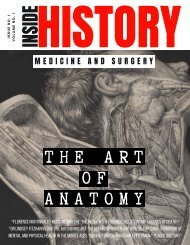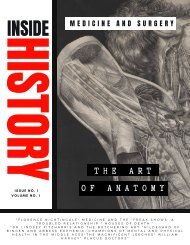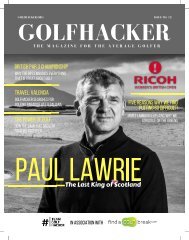Inside History: Protest. Revolt & Reform
For our next issue we take a closer look at the theme of Protest from the events of Peterloo to the fall of the Berlin. Inside we cover a whole range of historical protests and the individuals who led the charge for change. This issues includes: John Brown's raid on Harpers Ferry, The Suffragettes, Billie Holiday and the role music has played in protests, The Civil Rights Movement, Protest and Sport, We are the People: The Fall of the Berlin Wall, Bloody Sunday at Trafalgar Square, and much much more.
For our next issue we take a closer look at the theme of Protest from the events of Peterloo to the fall of the Berlin. Inside we cover a whole range of historical protests and the individuals who led the charge for change. This issues includes:
John Brown's raid on Harpers Ferry, The Suffragettes, Billie Holiday and the role music has played in protests, The Civil Rights Movement, Protest and Sport, We are the People: The Fall of the Berlin Wall, Bloody Sunday at Trafalgar Square, and much much more.
- No tags were found...
Create successful ePaper yourself
Turn your PDF publications into a flip-book with our unique Google optimized e-Paper software.
FIGHTING TO VOTE
Deeds, not words
CHRISTABEL
PANKHURST
To some Christabel Pankhurst is seen as a heroine who dedicated her life
to the right for women to have their vote. To others, she is seen as a
symbol of terror that caused mayhem in her violent pursuit of women's
rights. The truth however lays somewhere in between as Olivia
Richardson explains.
Christabel Pankhurst was born on September 22, 1880,
in Manchester. She was the daughter of leading
suffrage activist Emmeline Pankhurst and the sister of
Sylvia Pankhurst. Christabel followed in her mother’s
footsteps in campaigning for women’s rights to vote.
She became a co-founder of the Women’s Social and
Political Union (WSPU) with her mother from 1903
to 1918. Christabel, labelled as the ‘Queen of the Mob,’
was known for pioneering the use of the WSPU’s
militant strategies in achieving women’s suffrage.
With an interest in politics and inspired by her father’s
career as a barrister, Christabel studied law at the
University of Manchester, graduating with a first-class
degree in 1906. However, she was unable to become a
lawyer because women were not permitted to enter
the legal profession. Despite this, Christabel used her
education to her advantage and her legal knowledge
became an asset towards her fight for women’s
suffrage. She acquired the skills to persuasively convey
her views about gender inequality through her public
speeches and pamphlets.
Under Christabel’s leadership, the WSPU developed the
use of militant tactics enforced by its motto of “Deeds
Not Words.” Women had campaigned for the right to
vote since the 1880s; however, Christabel believed
something had to change. Organisations such as the
National Union of Women’s Suffrage Societies (NUWSS)
led by Millicent Fawcett had tried to peacefully
persuade politicians to grant women the right to vote
by writing letters, creating petitions and holding public
meetings. For Christabel, peaceful protest was no
longer enough to secure democratic rights for women.
Christabel favoured a confrontational approach,
arguing that previous protestors had been far too
submissive. In a speech, she highlighted inequality
between men and women regarding protest,
stating: “Men got the vote, not by persuading but by
alarming the legislators. Similar vigorous measures
must be adopted by women.”
The slogan of “Deeds Not Words” was put into
action by Christabel on October 13, 1905, when she
and her friend Annie Kenney disrupted a Liberal
Party meeting held in the Free Trade Hall in
Manchester. They demanded answers from MPs
regarding women’s rights to vote, waving a banner
declaring "Votes for Women". Police forcibly
removed them from the meeting, resulting in
Christabel spitting at an officer. The women were
arrested and charged with assault after refusing to
pay fines. The event attracted media attention and
became a vital moment in highlighting the use of
civil disobedience from women fighting to achieve
the vote. The newspaper coverage of the protest
was an accomplishment in raising awareness
of the WSPU and its militant campaign. Christabel
later wrote: “Where peaceful means had failed, one
act of militancy succeeded and never again was the
cause by that or any other newspaper.”
After obtaining her degree in 1906, Christabel
moved to the WSPU’s headquarters in London
to start her role as the organising secretary of the
group. In 1908, Christabel along with her mother
and WSPU member Flora Drummond organised a
‘rush’ on the House of Commons by issuing
pamphlets to members of the public asking for
support. Days later, they held a rally in Trafalgar
26 INSIDE HISTORY

















